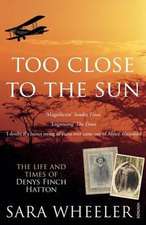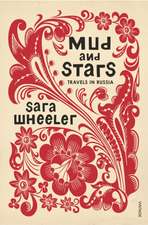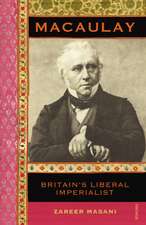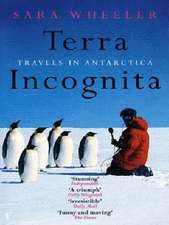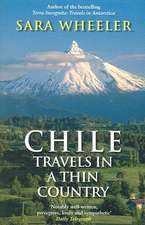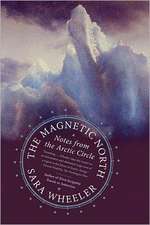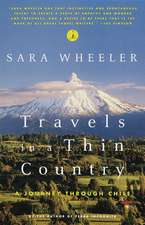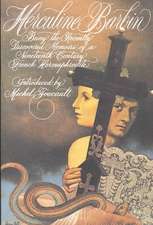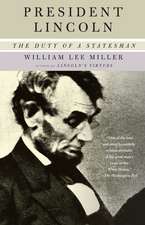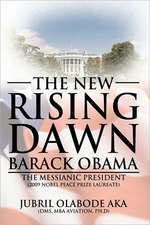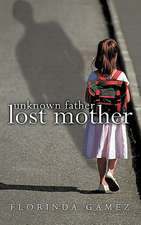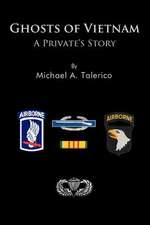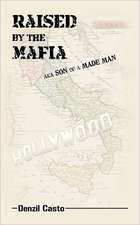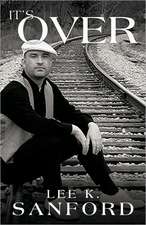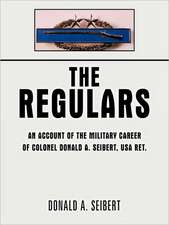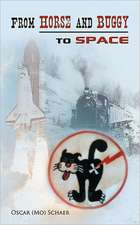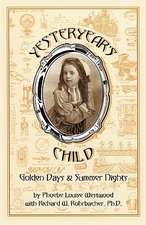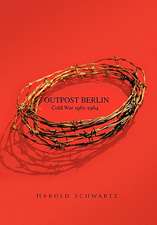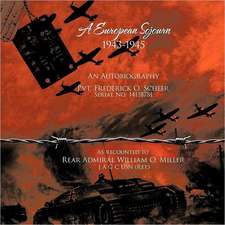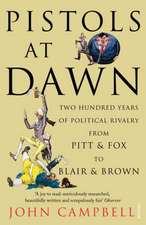Cherry: A Life of Apsley Cherry-Garrard: Modern Library (Paperback)
Autor Sara Wheeleren Limba Engleză Paperback – 31 mar 2003
After serving in the First World War, with zealous encouragement from his neighbor George Bernard Shaw, Cherry wrote the undisputed masterpiece of polar literature, The Worst Journey in the World. But as the years progressed, he faced a terrible struggle against depression and despair. Sara Wheeler’s Cherry is the first biography of this great hero of Antarctic exploration, written with unrestricted access to his papers and with the full cooperation of his family.
| Toate formatele și edițiile | Preț | Express |
|---|---|---|
| Paperback (2) | 69.29 lei 23-34 zile | +25.10 lei 7-13 zile |
| Vintage Publishing – 31 oct 2002 | 69.29 lei 23-34 zile | +25.10 lei 7-13 zile |
| Modern Library – 31 mar 2003 | 108.33 lei 3-5 săpt. |
Din seria Modern Library (Paperback)
-
 Preț: 129.93 lei
Preț: 129.93 lei -
 Preț: 106.94 lei
Preț: 106.94 lei -
 Preț: 124.55 lei
Preț: 124.55 lei -
 Preț: 120.25 lei
Preț: 120.25 lei -
 Preț: 112.74 lei
Preț: 112.74 lei -
 Preț: 169.74 lei
Preț: 169.74 lei -
 Preț: 100.57 lei
Preț: 100.57 lei -
 Preț: 107.35 lei
Preț: 107.35 lei -
 Preț: 155.91 lei
Preț: 155.91 lei -
 Preț: 142.38 lei
Preț: 142.38 lei -
 Preț: 142.79 lei
Preț: 142.79 lei -
 Preț: 133.47 lei
Preț: 133.47 lei -
 Preț: 126.88 lei
Preț: 126.88 lei -
 Preț: 134.93 lei
Preț: 134.93 lei -
 Preț: 120.07 lei
Preț: 120.07 lei -
 Preț: 119.74 lei
Preț: 119.74 lei -
 Preț: 122.76 lei
Preț: 122.76 lei -
 Preț: 119.36 lei
Preț: 119.36 lei -
 Preț: 112.33 lei
Preț: 112.33 lei -
 Preț: 79.39 lei
Preț: 79.39 lei - 18%
 Preț: 97.51 lei
Preț: 97.51 lei -
 Preț: 137.09 lei
Preț: 137.09 lei -
 Preț: 103.26 lei
Preț: 103.26 lei
Preț: 108.33 lei
Nou
Puncte Express: 162
Preț estimativ în valută:
20.73€ • 21.69$ • 17.22£
20.73€ • 21.69$ • 17.22£
Carte disponibilă
Livrare economică 12-26 martie
Preluare comenzi: 021 569.72.76
Specificații
ISBN-13: 9780375754548
ISBN-10: 0375754547
Pagini: 384
Ilustrații: 16-PP PHOTO INSERT & 3 MAPS
Dimensiuni: 131 x 204 x 20 mm
Greutate: 0.27 kg
Editura: Modern Library
Seria Modern Library (Paperback)
ISBN-10: 0375754547
Pagini: 384
Ilustrații: 16-PP PHOTO INSERT & 3 MAPS
Dimensiuni: 131 x 204 x 20 mm
Greutate: 0.27 kg
Editura: Modern Library
Seria Modern Library (Paperback)
Recenzii
“Utterly fascinating...Wheeler has given us an important new understanding of the most notorious calamity in the annals of twentieth-century exploration. Cherry is a wonderful book.” —Jon Krakauer, author of Into Thin Air
“Beautifully written...Wheeler’s vocabulary to evoke this luminous and cruel continent...appears limitless.” —Caroline Alexander, The New York Times Book Review
“Spellbinding...Cherry is an exquisite work.” —The Washington Post
“Accomplishes what only the best biographies can....She is able to satisfy the reader’s curiosity of how it must have felt to be on that doomed expedition.” —The Times (London)
“With this wonderful biography Sara Wheeler has now vaulted into the front rank of modern British writers....Cherry is so much more than a story of one remarkable man. It is, among other things, an exploration of the mind, a tour through the notions of national identity and pride, and a celebration of the tensile strength of the human spirit.” —Simon Winchester
“Beautifully written...Wheeler’s vocabulary to evoke this luminous and cruel continent...appears limitless.” —Caroline Alexander, The New York Times Book Review
“Spellbinding...Cherry is an exquisite work.” —The Washington Post
“Accomplishes what only the best biographies can....She is able to satisfy the reader’s curiosity of how it must have felt to be on that doomed expedition.” —The Times (London)
“With this wonderful biography Sara Wheeler has now vaulted into the front rank of modern British writers....Cherry is so much more than a story of one remarkable man. It is, among other things, an exploration of the mind, a tour through the notions of national identity and pride, and a celebration of the tensile strength of the human spirit.” —Simon Winchester
Notă biografică
Sara Wheeler spent seven months in Antarctica in 1995 as writer in residence with the U.S. Polar Program. She is the author of Terra Incognita: Travels in Antarctica, an international bestseller chosen by Beryl Bainbridge as one of the best books of the year, and Travels in a Thin Country, a finalist for the Thomas Cook Award, both available from the Modern Library.
From the Hardcover edition.
From the Hardcover edition.
Extras
Chapter 1
Ancestral Voices
In the restless years of middle age Cherry used to sit in the bow-window of his library, turning the pages of the journals he had kept in the Antarctic three decades before. Absorbed in those far-off years, he jotted notes in the margins, as if the expedition had not yet reached its conclusion. ‘All Scott’s men had been altered,’ he wrote crossly. ‘Scott should have asked the doctors for their advice.’ Beyond the trimmed lawns outside, the familiar figure of Tilbury, the head gardener, stooped over the rhododendrons. The rooks returned to their nests in the elms, briefly darkening the sky. Cherry leafed through the flimsy notebook, recalling the rippled glaciers that tumbled down Mount Erebus, their gleaming cliffs casting long blue shadows; the crunching patter of dogs on the march; the pale, shadowless light of the ice shelf and a smudgy sun wreathed in mist. ‘Those first days of sledging were wonderful!’ he had written. In the quiet of his library he heard again the hiss of the Primus after a long, hard day on the trail, and smelt the homely infusion of tobacco as the night sun sieved through the green cambric of the tent. He tasted the tea flavored with burnt blubber, and felt the rush of relief as tiny point of light from the kippered hut glimmered faintly in the unforgiving darkness of an Antarctic winter. ‘Can we ever forget those days?’ he wrote.
Cherry tortured himself over his action in February 1912, when he had driven a team of dogs 150 miles south to a foot depot to wait for Captain Scott and his four companions; they were expected to return from the Pole at any day. Winter was closing in and Cherry was navigating for the first time in his life, desperately handicapped by short sight, brutal temperatures and diminishing light. He reached the foot depot with his Russian dogdriver, and, following instructions, they stopped, pinned down in a tiny tent in hundreds of miles of opaque, swirling drift. They could not go on: they had no dog food to spare. Cherry remembered straining his eyes in the milky light of the Great Ice Barrier, looking for men who never came. One night he was so sure he could see figured approaching that he had reached for his boots and set out to meet them.
The truth was that he could have gone on. He could have pressed on through the blizzard, killing a dog at a time to feed the others. He had been ordered to spare the dogs, but, as he had once written, ‘In this sort of life orders have to be elastic.’ If he had killed the dogs, and if he had journeyed just twelve-and-a-half miles further, there was a tiny chance that he might have stumbled on a small pyramid tent in which three men were dying. One was Captain Scott. The other two were Birdie Bowers and Bill Wilson, the closest friends Cherry had ever had. It was Bill who had got him onto the expedition; Bill who had stood in for his dead father; Bill who had taught him the things he came to think were most important. In death and in life, Bill as never far from Cherry’s mind. ‘If you simply knew him,” he wrote of his mentor, ‘you could not like him: you simply had to love him.’ When, having missed Scott and the others, he got back to the hut that was their Antarctic base, Cherry dreamt that his friends walked in. Almost two decades later he noted in the margin of his polar journal, ‘My relief was so intense that I can remember waking up to the disappointment even now.’
Ten months after the journey to the food depot Cherry and a search party found the tent, piled with snow and weighted to the ice by three mottled corpses. He went through Bill’s pockets, collecting the contents for his widow. The body was hard, like stone. After prayers, they left the three men side by side in their sleeping bags, removing the bamboo tent poles and collapsing the cambric over them. The sun was dipping low over the Pole, the Barrier almost in shadow, and the sky was a mass of iridescent cloud, dark against gold and emerald. Cherry said it was a grave which kings must envy.
From that day, he was obsessed by the thought that he might have saved them. ‘If we [he and the Russian dog-driver] had traveled on for a day and a half,’ he wrote, ‘We might have left some food and oil on one of the cairns, hoping that they would see it.’ It was a devastating realization. ‘But we never dreamed that they were in great want. It will always to the end of my life be a great sorrow to me that we did not do this.”
From the Hardcover edition.
Ancestral Voices
In the restless years of middle age Cherry used to sit in the bow-window of his library, turning the pages of the journals he had kept in the Antarctic three decades before. Absorbed in those far-off years, he jotted notes in the margins, as if the expedition had not yet reached its conclusion. ‘All Scott’s men had been altered,’ he wrote crossly. ‘Scott should have asked the doctors for their advice.’ Beyond the trimmed lawns outside, the familiar figure of Tilbury, the head gardener, stooped over the rhododendrons. The rooks returned to their nests in the elms, briefly darkening the sky. Cherry leafed through the flimsy notebook, recalling the rippled glaciers that tumbled down Mount Erebus, their gleaming cliffs casting long blue shadows; the crunching patter of dogs on the march; the pale, shadowless light of the ice shelf and a smudgy sun wreathed in mist. ‘Those first days of sledging were wonderful!’ he had written. In the quiet of his library he heard again the hiss of the Primus after a long, hard day on the trail, and smelt the homely infusion of tobacco as the night sun sieved through the green cambric of the tent. He tasted the tea flavored with burnt blubber, and felt the rush of relief as tiny point of light from the kippered hut glimmered faintly in the unforgiving darkness of an Antarctic winter. ‘Can we ever forget those days?’ he wrote.
Cherry tortured himself over his action in February 1912, when he had driven a team of dogs 150 miles south to a foot depot to wait for Captain Scott and his four companions; they were expected to return from the Pole at any day. Winter was closing in and Cherry was navigating for the first time in his life, desperately handicapped by short sight, brutal temperatures and diminishing light. He reached the foot depot with his Russian dogdriver, and, following instructions, they stopped, pinned down in a tiny tent in hundreds of miles of opaque, swirling drift. They could not go on: they had no dog food to spare. Cherry remembered straining his eyes in the milky light of the Great Ice Barrier, looking for men who never came. One night he was so sure he could see figured approaching that he had reached for his boots and set out to meet them.
The truth was that he could have gone on. He could have pressed on through the blizzard, killing a dog at a time to feed the others. He had been ordered to spare the dogs, but, as he had once written, ‘In this sort of life orders have to be elastic.’ If he had killed the dogs, and if he had journeyed just twelve-and-a-half miles further, there was a tiny chance that he might have stumbled on a small pyramid tent in which three men were dying. One was Captain Scott. The other two were Birdie Bowers and Bill Wilson, the closest friends Cherry had ever had. It was Bill who had got him onto the expedition; Bill who had stood in for his dead father; Bill who had taught him the things he came to think were most important. In death and in life, Bill as never far from Cherry’s mind. ‘If you simply knew him,” he wrote of his mentor, ‘you could not like him: you simply had to love him.’ When, having missed Scott and the others, he got back to the hut that was their Antarctic base, Cherry dreamt that his friends walked in. Almost two decades later he noted in the margin of his polar journal, ‘My relief was so intense that I can remember waking up to the disappointment even now.’
Ten months after the journey to the food depot Cherry and a search party found the tent, piled with snow and weighted to the ice by three mottled corpses. He went through Bill’s pockets, collecting the contents for his widow. The body was hard, like stone. After prayers, they left the three men side by side in their sleeping bags, removing the bamboo tent poles and collapsing the cambric over them. The sun was dipping low over the Pole, the Barrier almost in shadow, and the sky was a mass of iridescent cloud, dark against gold and emerald. Cherry said it was a grave which kings must envy.
From that day, he was obsessed by the thought that he might have saved them. ‘If we [he and the Russian dog-driver] had traveled on for a day and a half,’ he wrote, ‘We might have left some food and oil on one of the cairns, hoping that they would see it.’ It was a devastating realization. ‘But we never dreamed that they were in great want. It will always to the end of my life be a great sorrow to me that we did not do this.”
From the Hardcover edition.
Descriere
Wheeler's "Cherry" is the first biography of the man who shaped the myth of Robert Falcon Scott, written with unrestricted access to his papers and the full cooperation of his widow, who has refused all requests until now.

